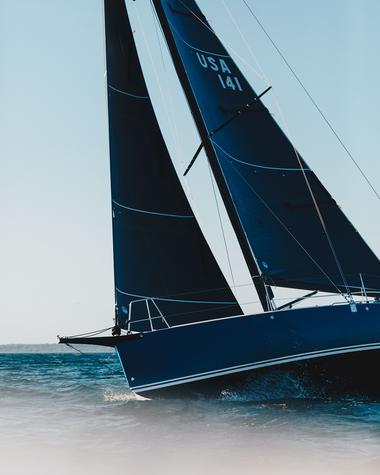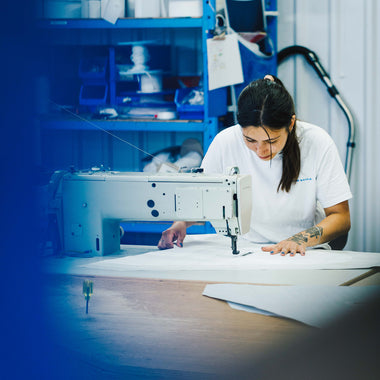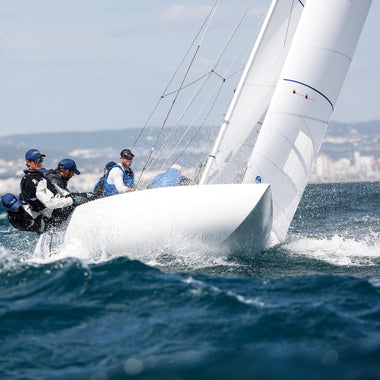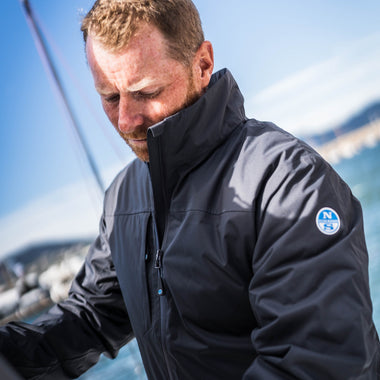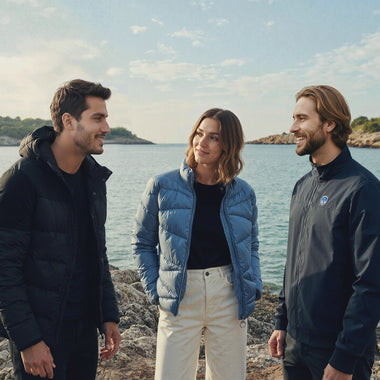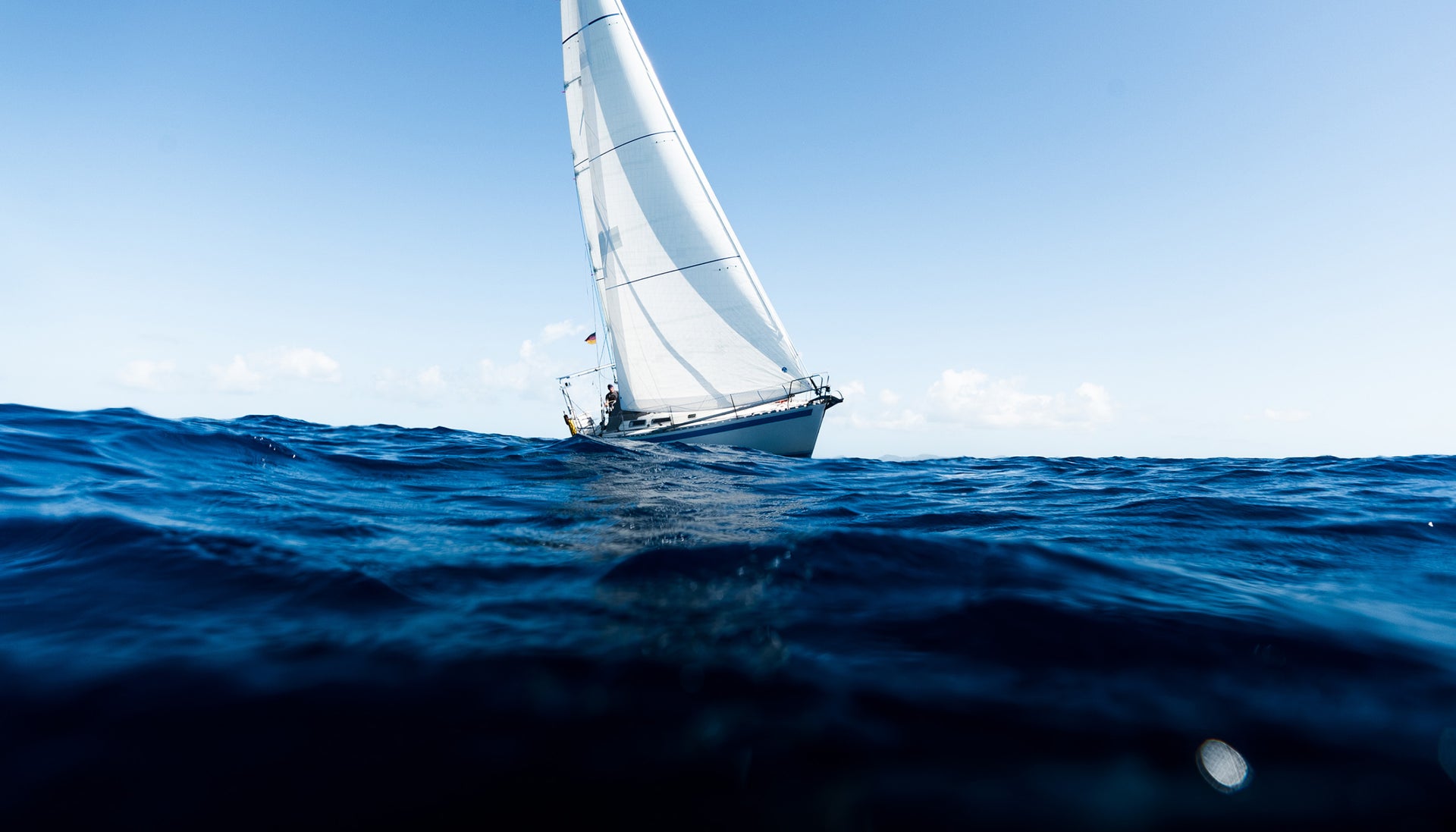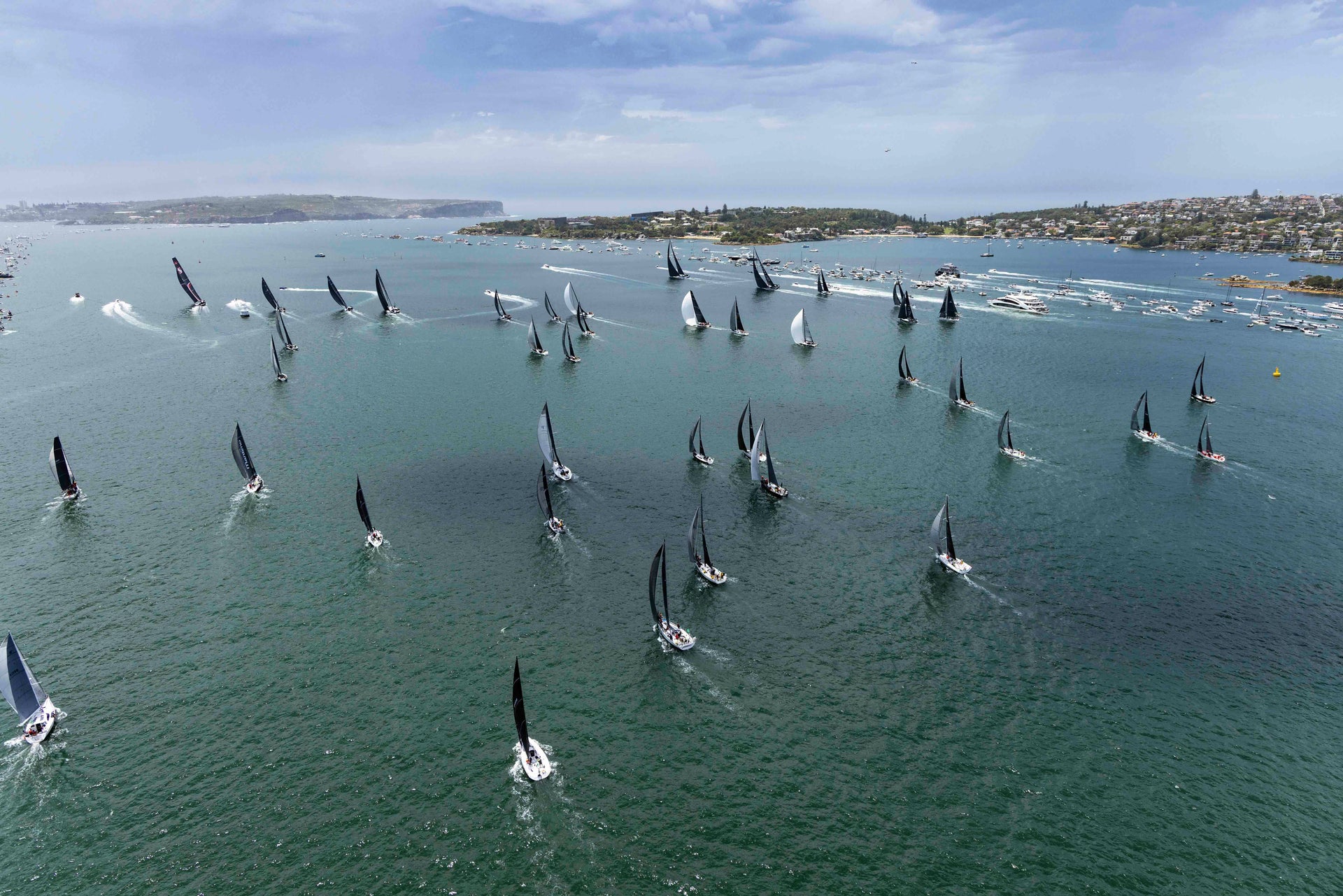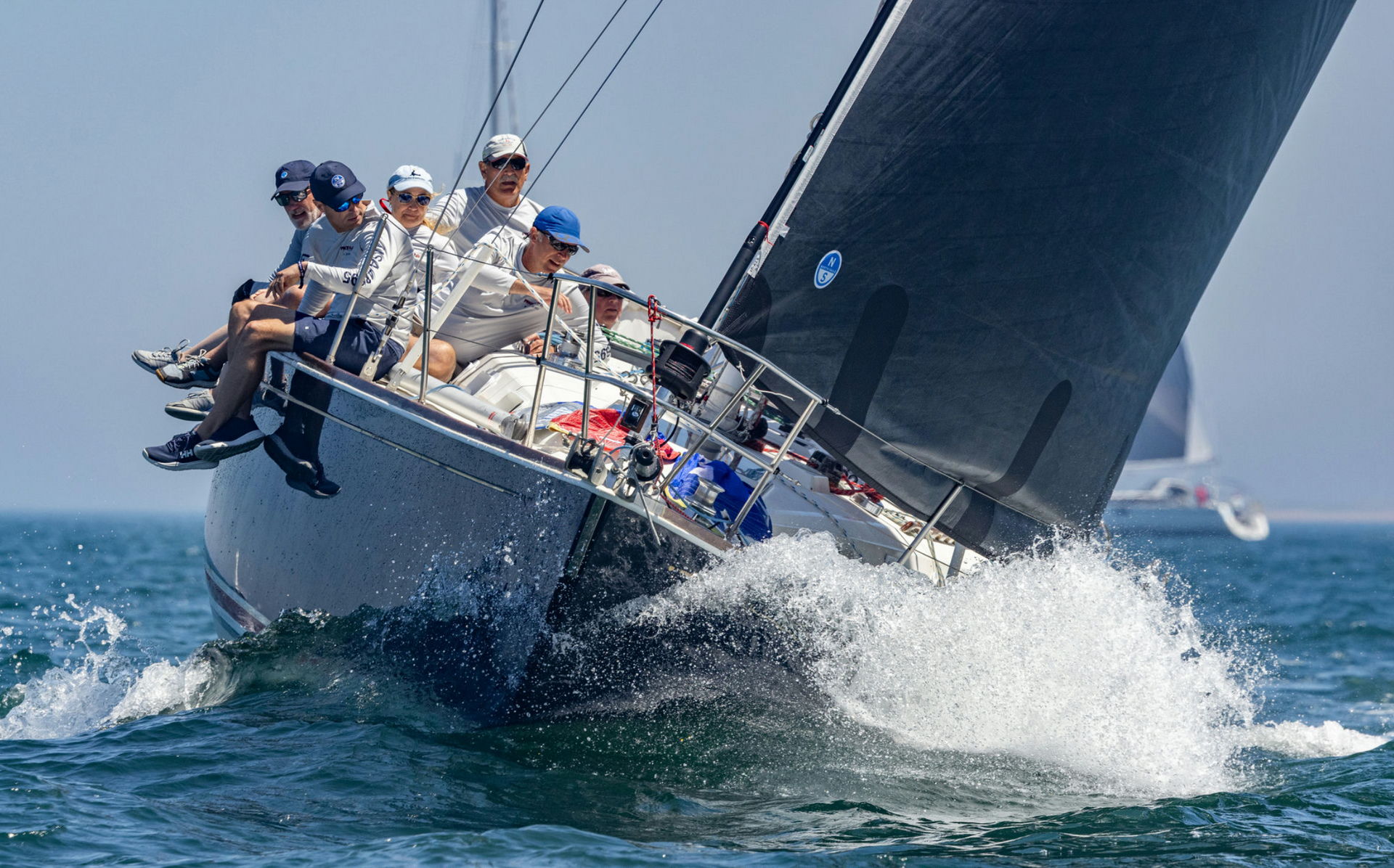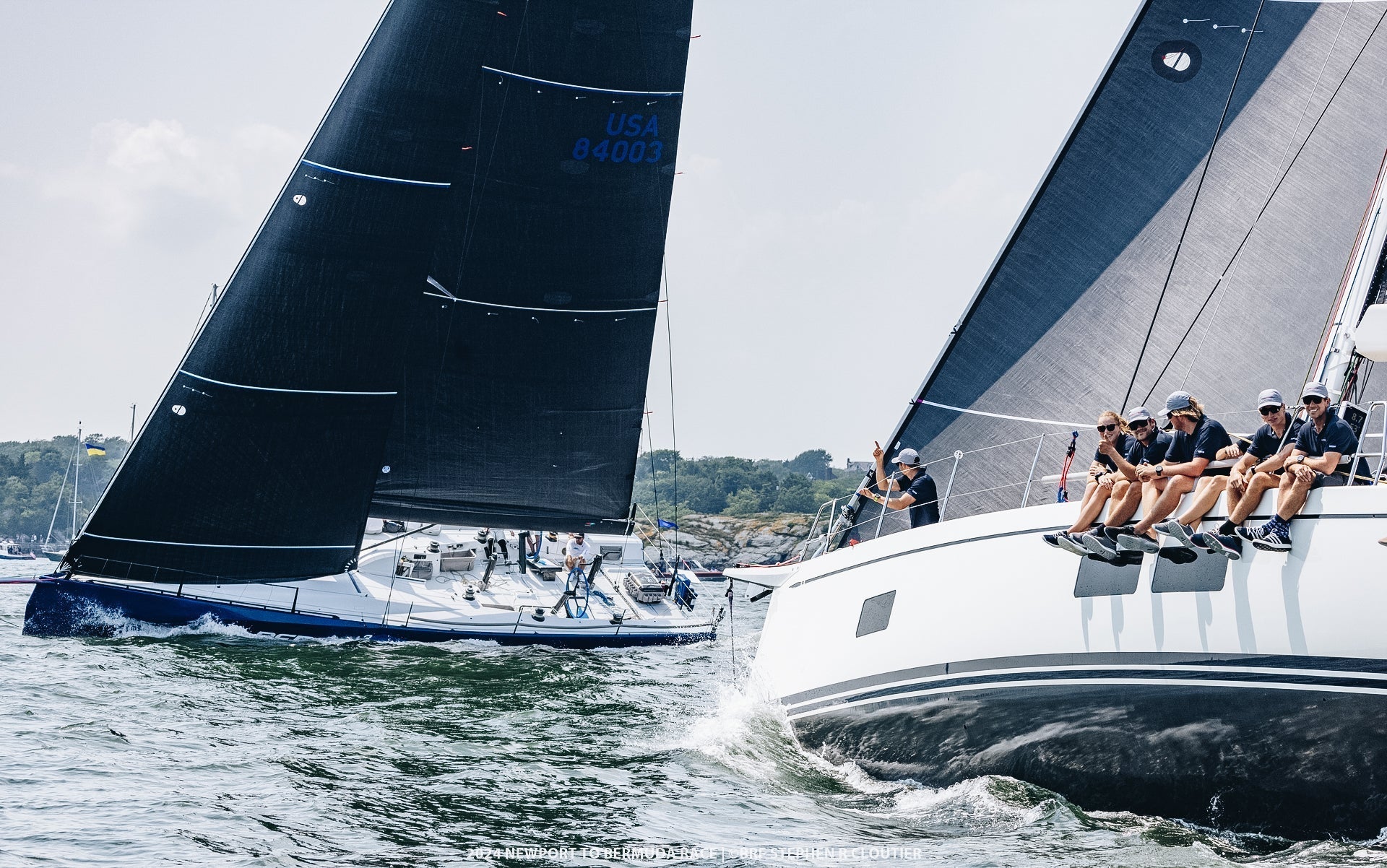2021 IC37 NATIONAL CHAMPIONSHIP
2021 IC37 NATIONAL CHAMPIONSHIP
Pacific Yankee Takes the Title

Three days of offshore buoy racing tested IC37 competitors at the 2021 National Championships, and the last race of the event determined who would take home this year’s National title. Drew Freides and Bill Ruh’s Pacific Yankee made only one major mistake (race 6, an OCS) and were the swiftest boat out there, racking up only 15 total points after seven races and one discard.
Skipper Drew Freides says they pride themselves on having a really good team. “We’ve got the crew work down pretty well. But it’s more of shifting gears and always keeping the boat going fast
John Brim’s Rima improved each day which put them in second overall with 22 points. John commented, “This is our first full season with a steady crew, and we feel like we’re learning how to sail the boat.”
Jay Cross, Ben Kinney, and Hannah Swett’s Members Only showed great speed and perseverance, taking third overall with 30 points. In fourth was team Sertl on Das Blau Max, with the most consistent scoreline of all teams, throwing out an 8th place with a total of 35 points. Close behind with 39 points was Peter McClellan’s Gamecock.

Like all one designs, time in the boat was vital. All boats in the IC37 fleet are set up identically, so it’s up to the crew to adapt to changing conditions and how that affects each role. Here are some tips to help you at your next event:
- Communicating boat speed out of tacks. The main trimmer can communicate this to the crew so they know when the boat is up to full speed. This helps the helmsman know when to put the bow down, and allows the runner and the jib trimmers to coordinate trimming efforts. This is not only crucial to starts but can be big in port/starboard crossing situations.
- Get familiar with your mast settings. Adjusting the mast shims is crucial for maintaining boat speed and set up as conditions change. Depending on how much power you’ll need and the wind speed you add or remove the mast shims which control shroud tension and headstay. If the headstay tension isn’t right you’ll have a hard time going upwind at full speed.
- Boat Handling & Crew Communication. From the beginning of the race to the end, there should be constant conversation about what is happening. Mainsail trimmer communicates to the runner trimmer when more power (or less) is needed. Jib trimmers are listening in, making sure they can adjust leads if needed for more power in the foot, and where they are as far as trim angle with where the leech hits the spreaders. Designating one person to communicate crew weight downwind with wave state was huge and big gains were made on jibes and working up and down on the waves.
Congratulations to Chris Culver’s Blazer II for qualifying for the NYYC Invitational Cup which will take place later this year.
Big thanks to Moose McClintock, IC37 fleet coach. His support for the class and sailors has been above and beyond. The daily debriefs have been helpful, and the feedback he’s provided to teams on the water has helped elevate the competition and contribute to the class’s success.

